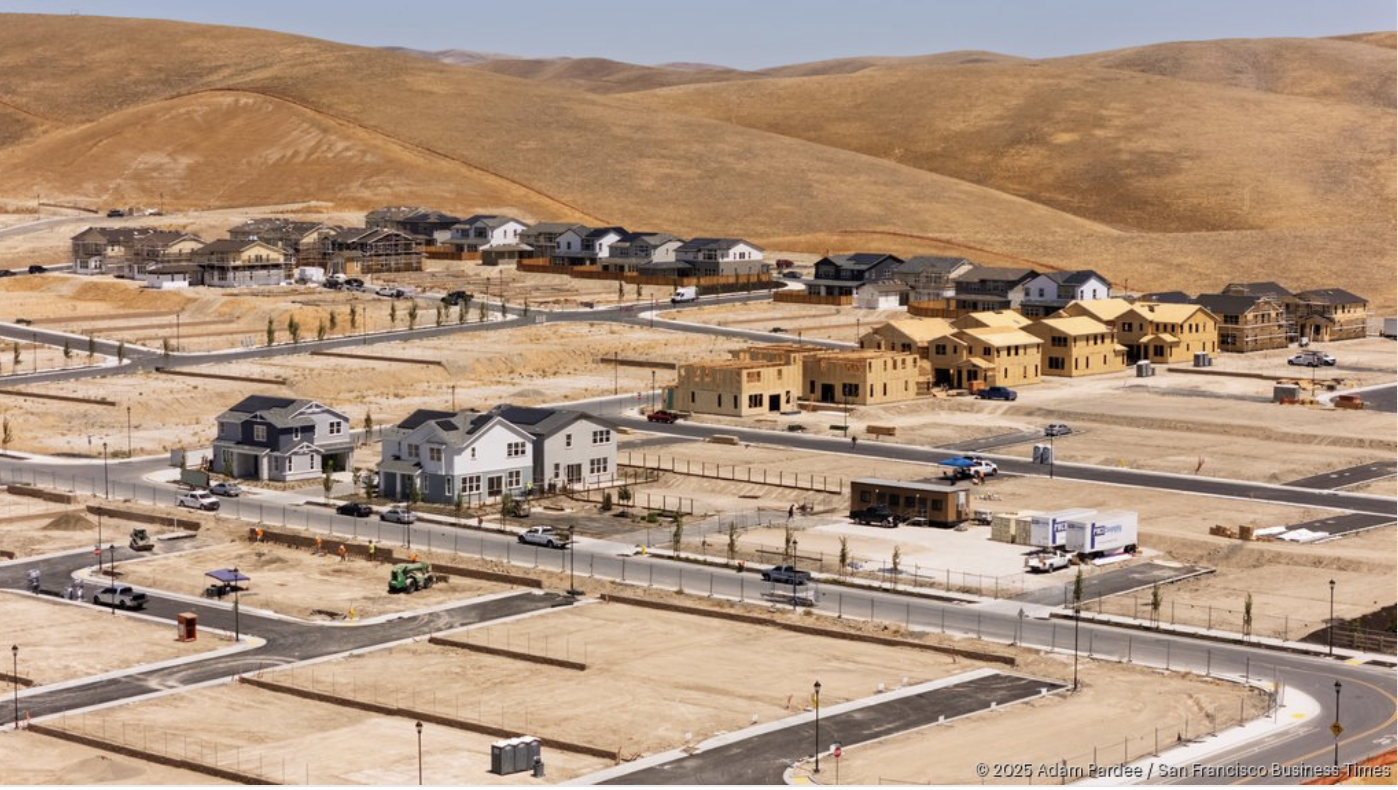
Two months after Trumark Homes’ plan to build hundreds of homes in East Dublin was blocked by anti-housing community members, the developer came back to the city council with a project they couldn’t refuse.
The project, called Francis Ranch, was being challenged by a local group, Dubliners Against Overdevelopment, which collected enough voter signatures at the time to force a referendum. That meant the city could either rescind the project’s approval, or put it on the ballot for voters to decide.
The city opted for the former, and after Trumark made some minor tweaks, the 573-unit plan became fully compliant with Dublin zoning and land use, and therefore could not be denied — thanks to the state’s Housing Accountability Act, which says cities cannot reject projects that comply with their own regulations. Homes are now rising on the site.
That legislation is one of several tools state lawmakers have added to developers’ arsenal over the years to address the housing shortage and get units built, like Senate Bill 330 and Assembly Bill 130, that remove loopholes and limit tactics anti-growth groups can use to block developments. And developers say the new rules are starting to have an impact.
The I-680 corridor — an area once notoriously challenging to build in with many projects delayed or killed after lengthy legal battles from local opposition groups — has become one of the fastest-growing regions in the Bay Area, developers say, as local governments have responded to the new legislation by laying out specific plans for where developers can build in their cities.

Development conditions “have never been better,” says Trumark’s Robin Miller.
“The development conditions today, from an entitlement standpoint … quite frankly have never been better, because of some of the new state bills that have gone through,” said Robin Miller, Trumark’s vice president of community development. “Surety of timing for the review periods as well as the fixing of what the zoning and housing element are allows developers to have some surety of what they’re working towards.”
While getting a project entitled has never been easier, getting it financed is another question. Construction costs, interest rates and broader economic uncertainty have kept some projects stuck in the pipeline and dampened what could have been a surge in building.
Still, Dublin’s City Council approved Francis Ranch for the second and final time in 2022, and construction is currently underway on its first homes.


